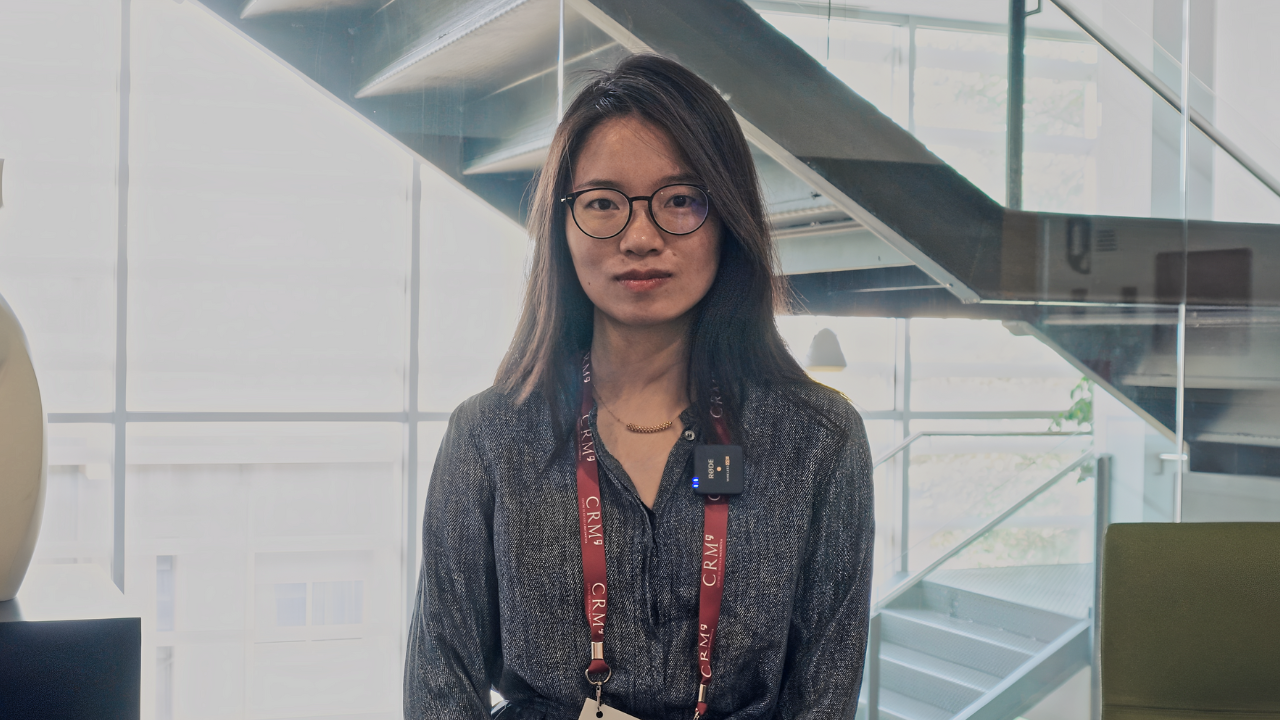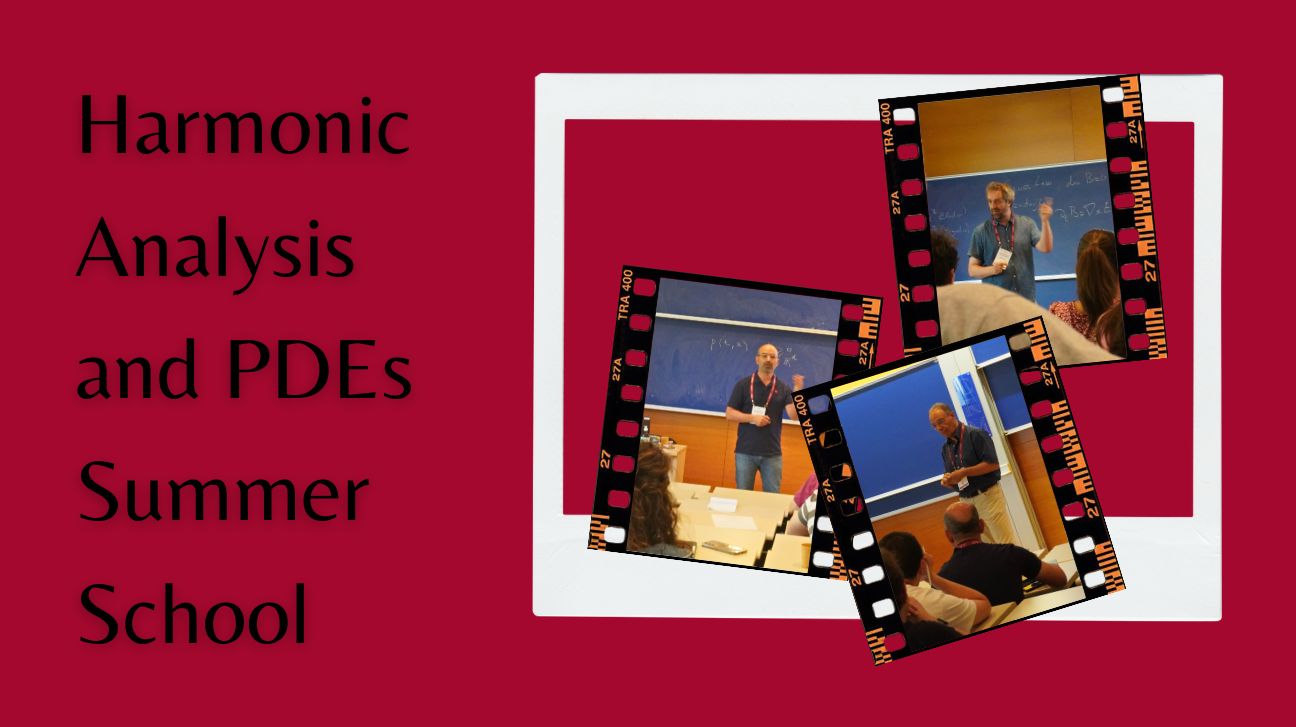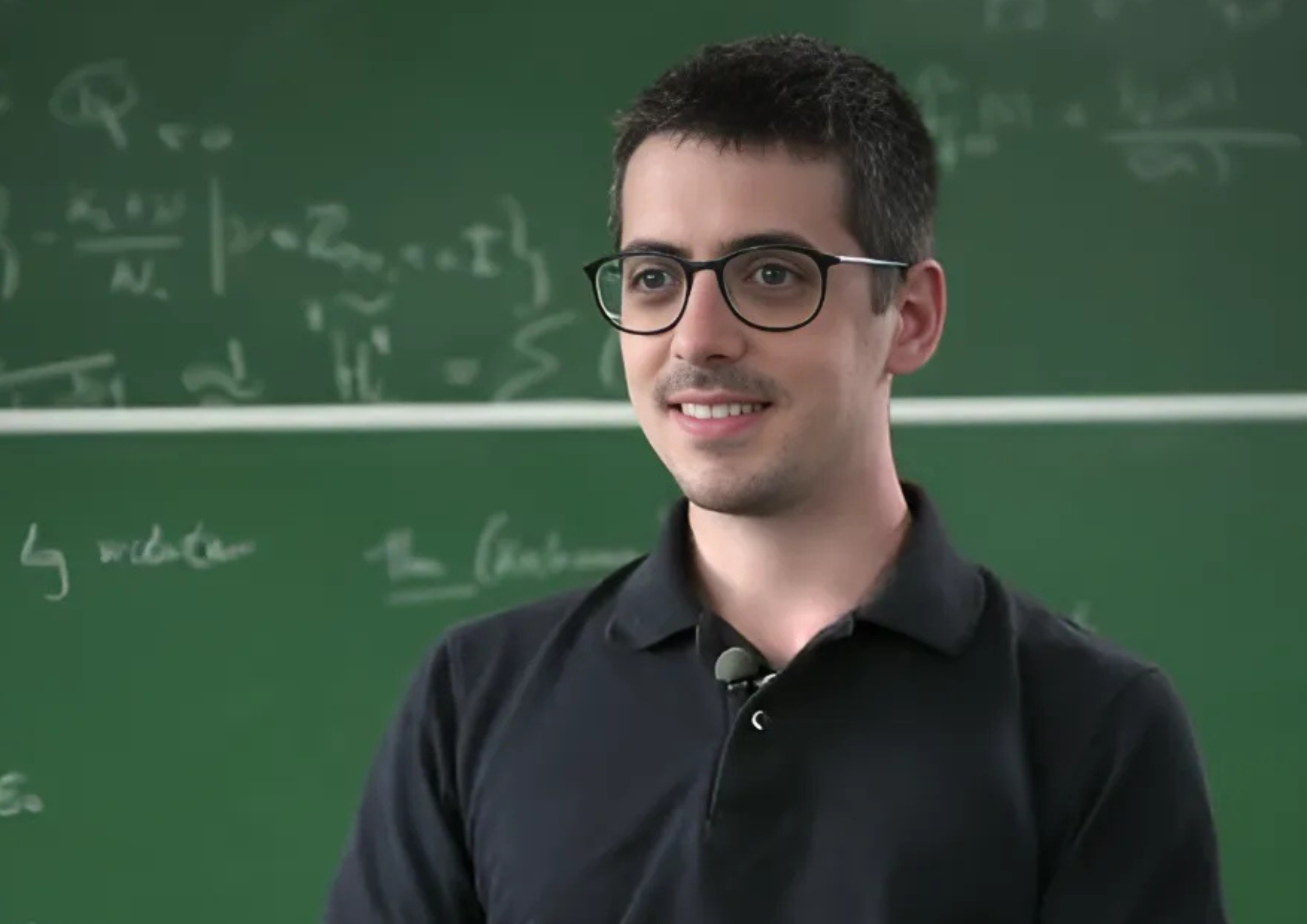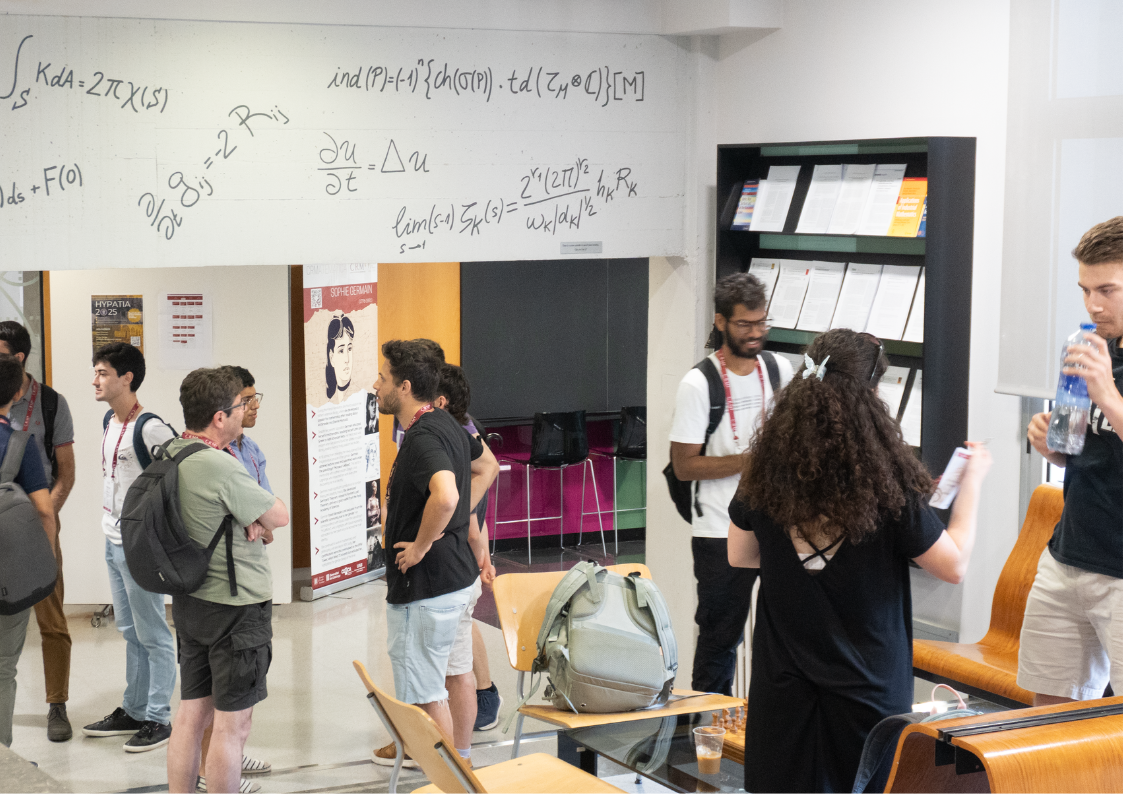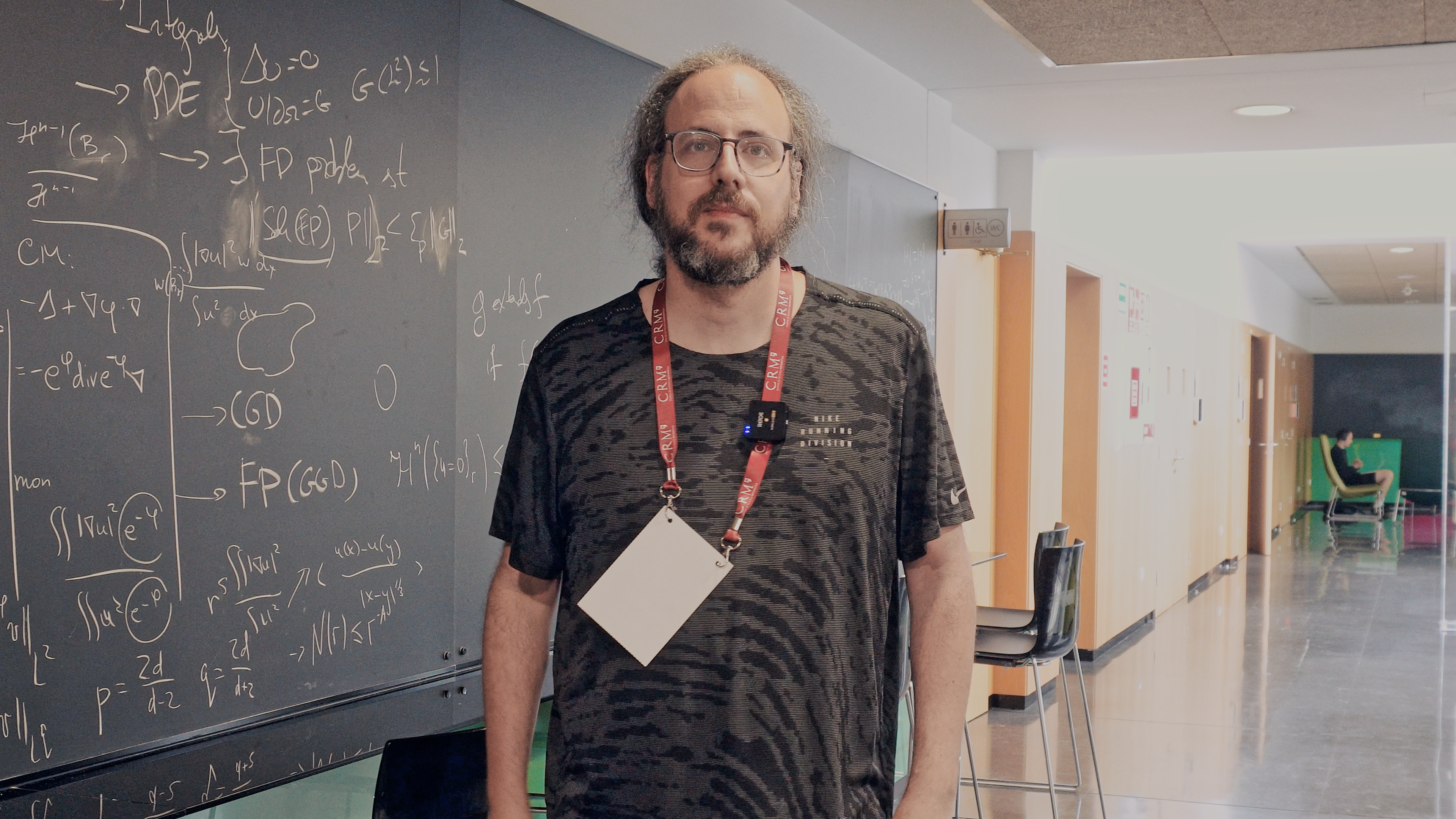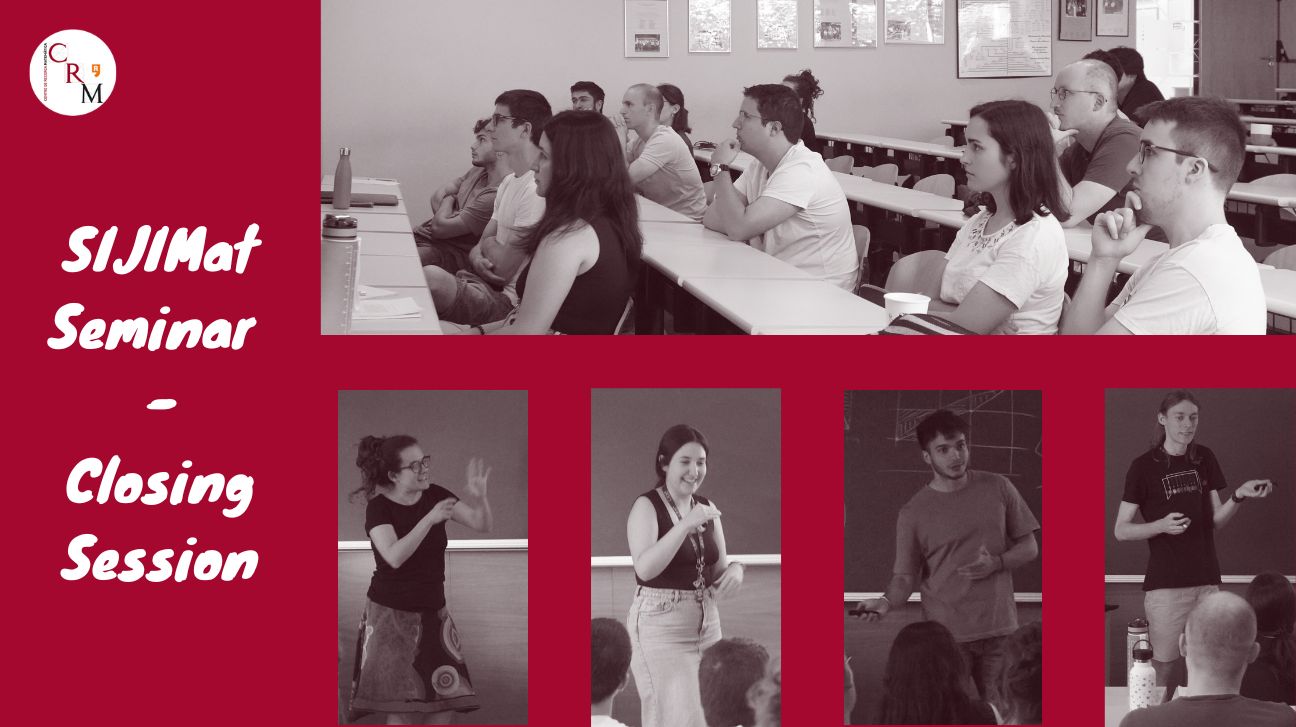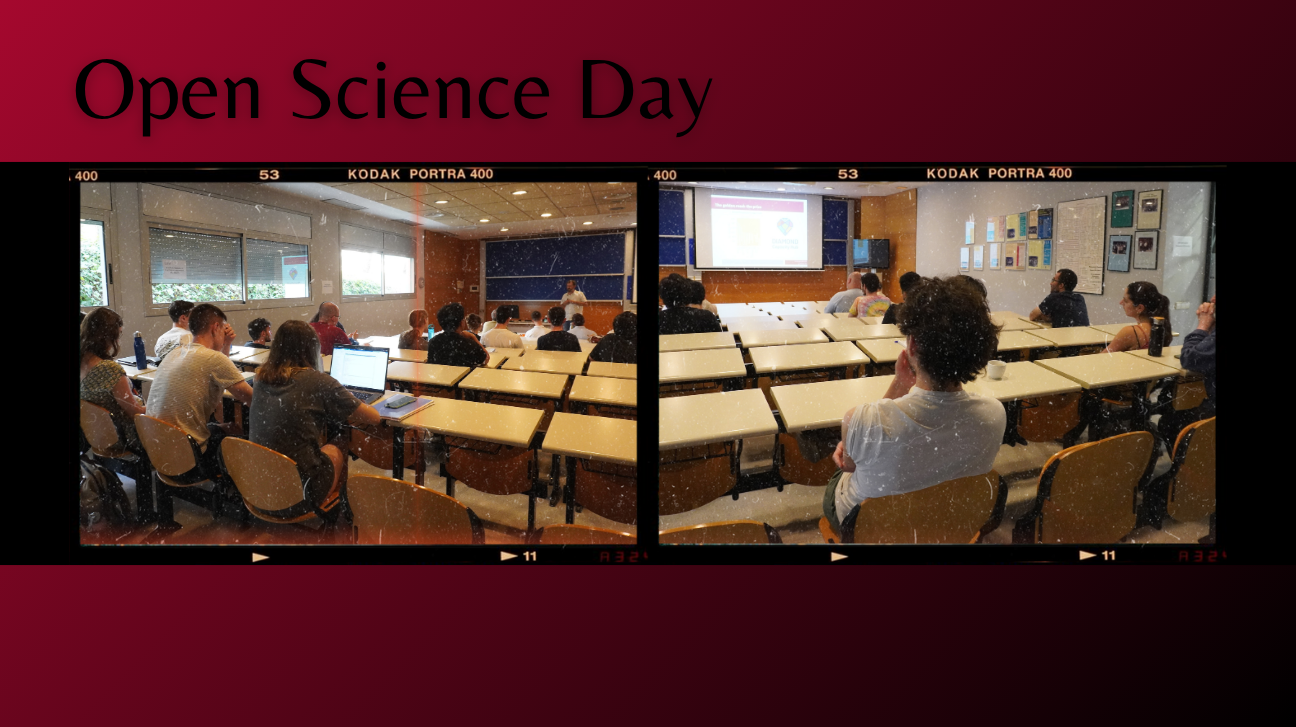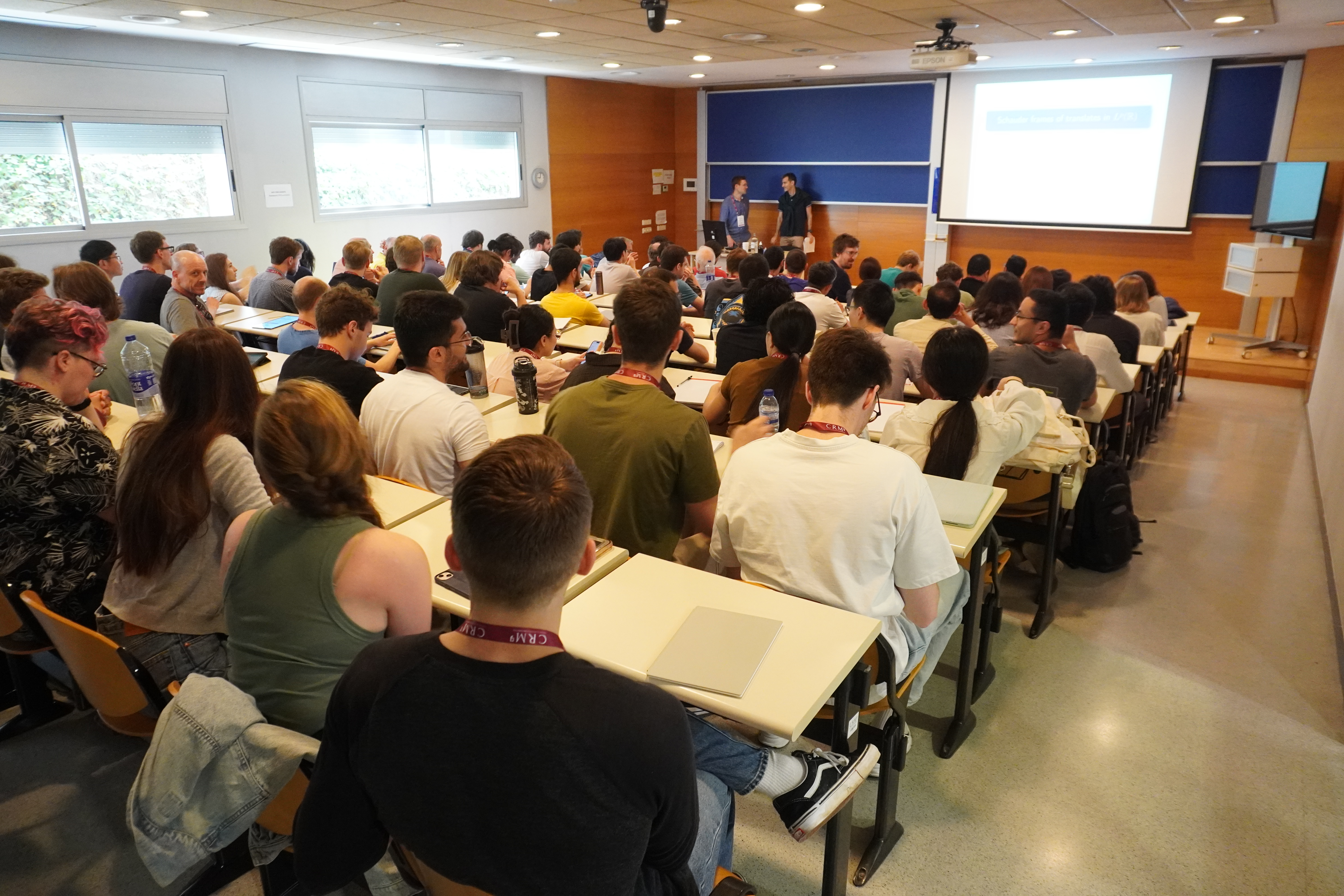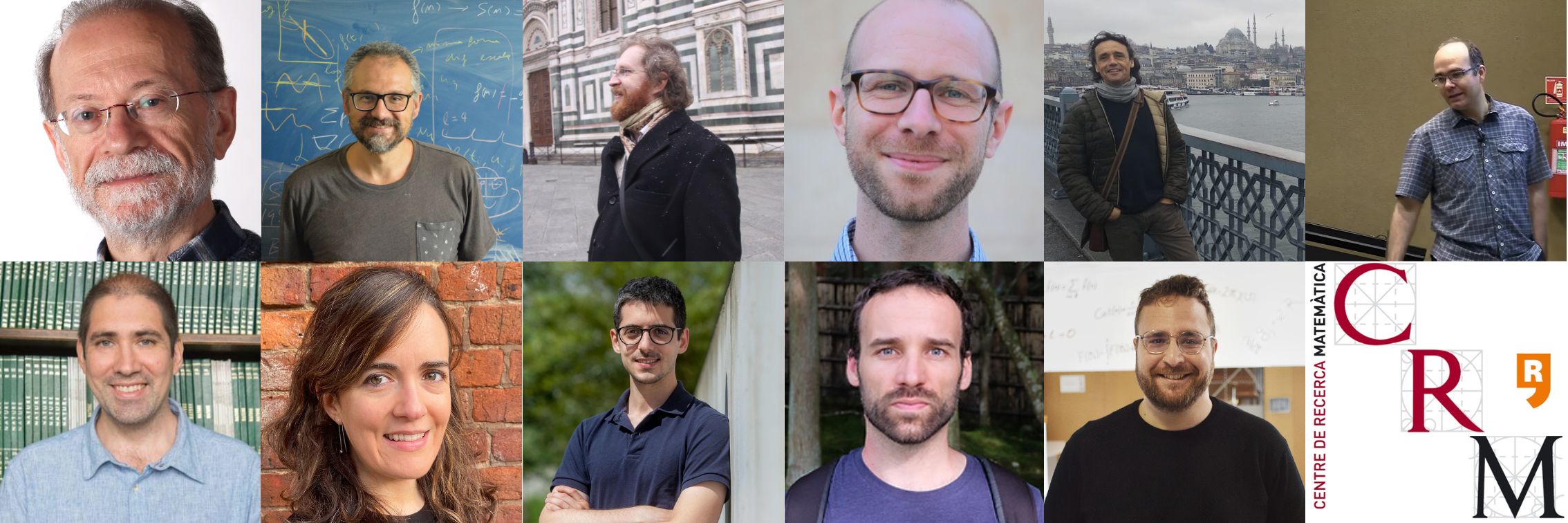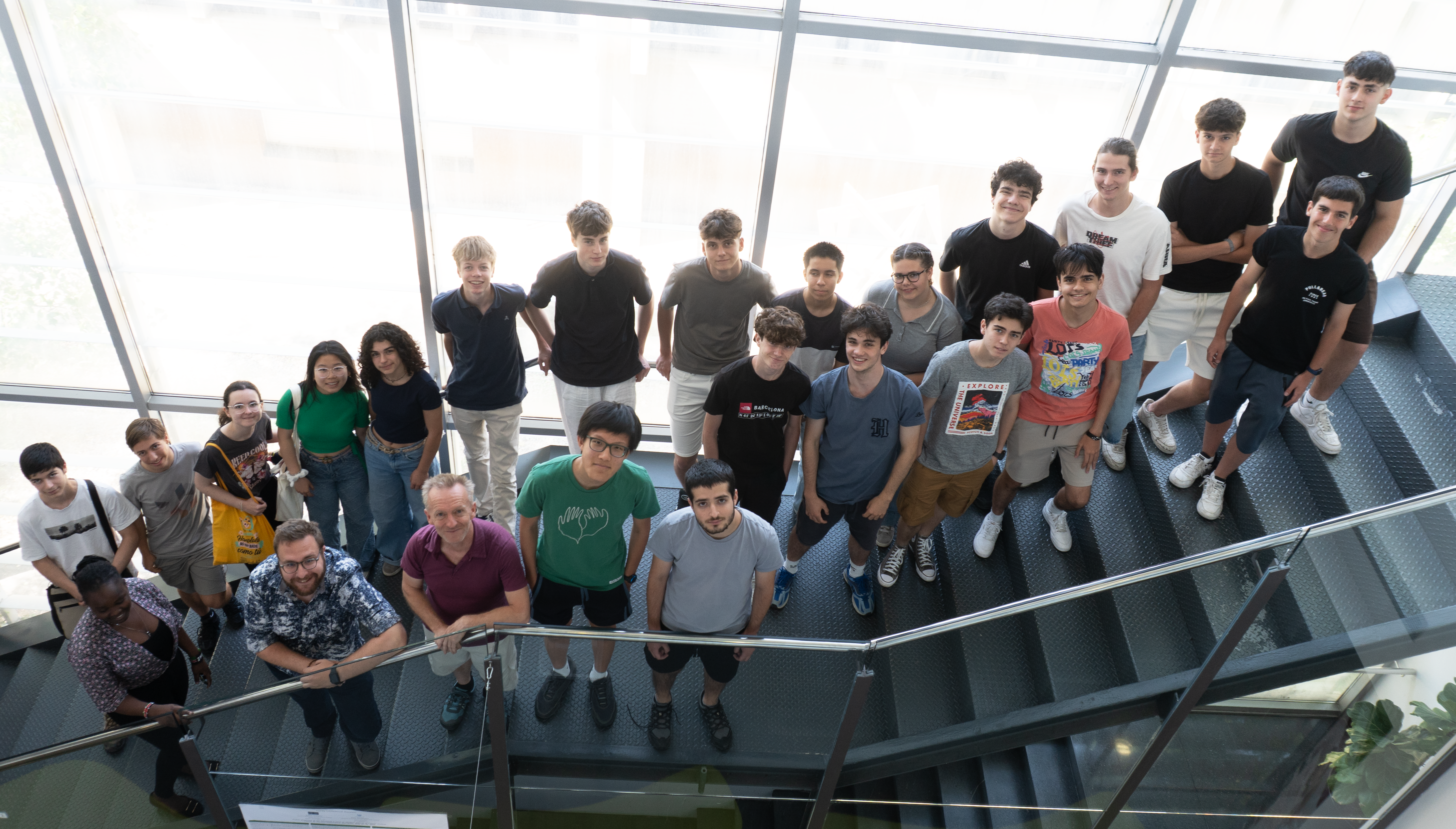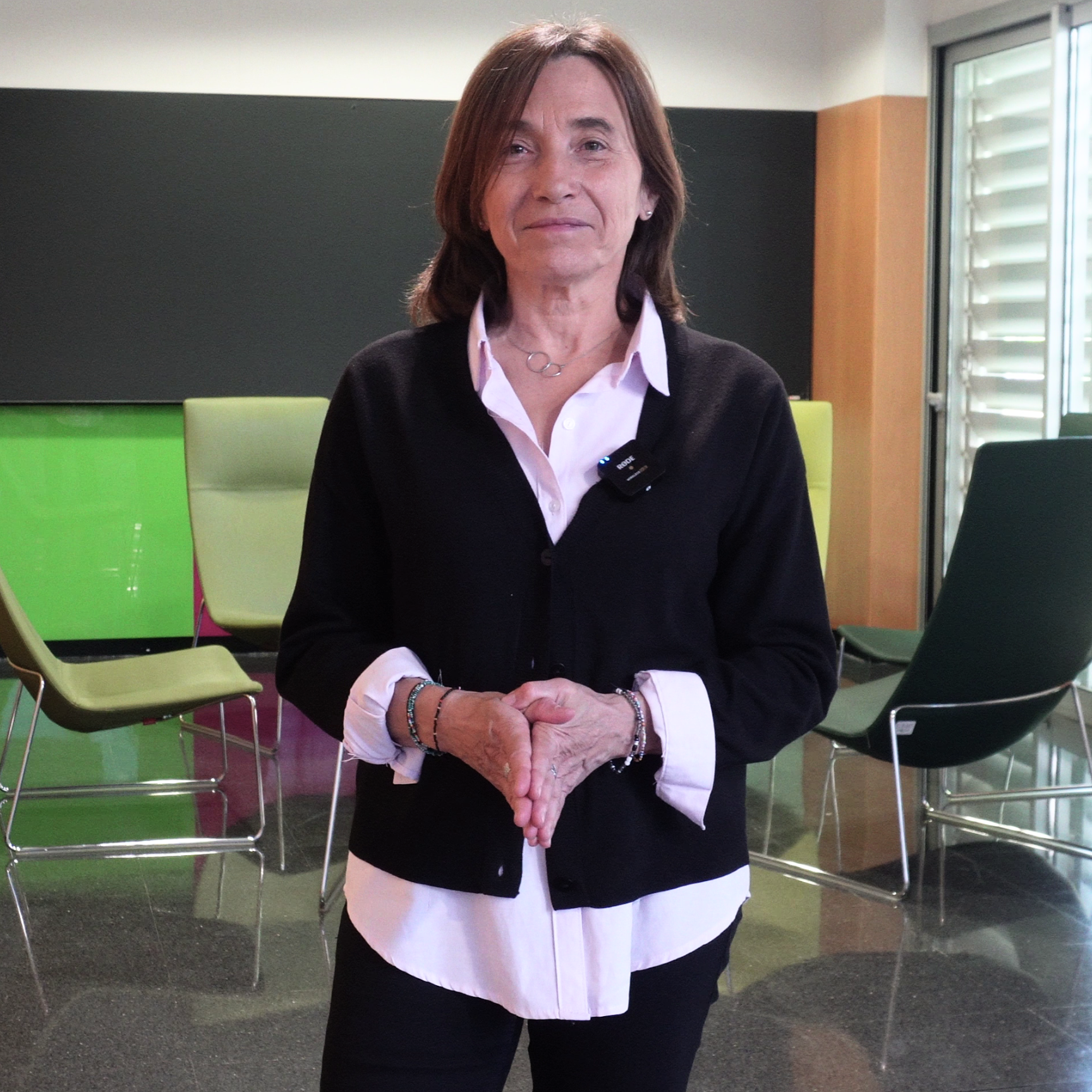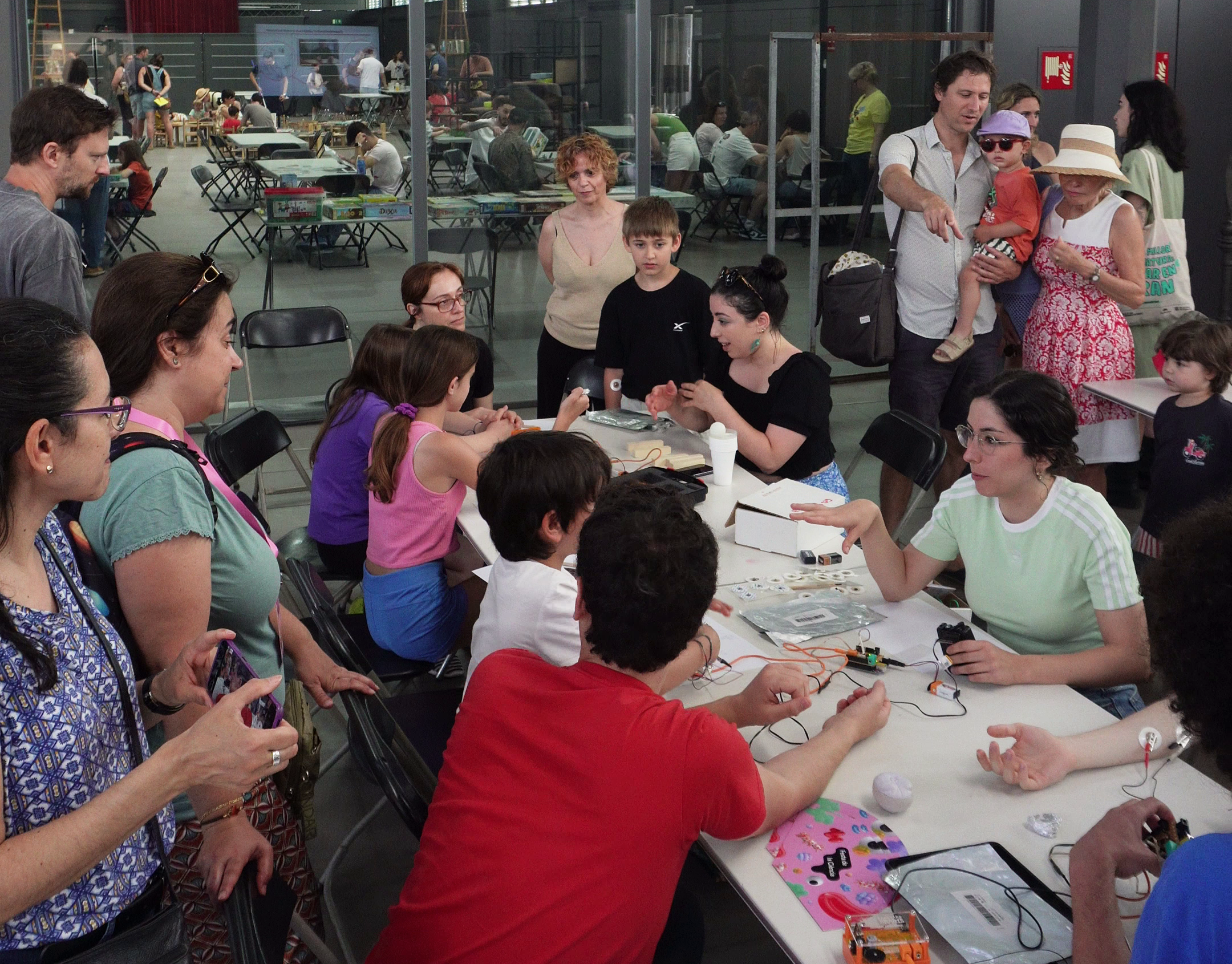On the 13th of February of 2023, the Kick-off meeting of the project Dynamical systems and computational mathematics towards the optimization of Therapeutic Interfering ParticleS as AntiVIRal therapy (TIPSAVIR) took place at the Centre de Recerca Matemàtica (CRM). The project is a Proof of Concept build upon the research performed in “The Mathematical Underpinnings of System Biology”, both funded by the Ministerio de Ciencia e Innovación (MICINN). The PIs from the project (and the previous one) are CRM’s researchers Josep Sardanyés and Tomás Alarcón, from the Mathematical and Computational Biology group.
Presenting the project
Lluis Alsedà (CRM’s director) opened the day expressing his delight for presenting a project of such an interdisciplinary nature – project in which he also participates as part of the research team. The project, that combines different research fields, from mathematics to virology, aligns to an interdisciplinary approach to research that the center is determined to encourage.
Josep Sardanyés, one of the project PIs, was in charge of presenting the project to the audience. As the motivation of the project, he explained the major burden viruses are for public health and economy (affecting, for example, agriculture). Despite that, the antiviral options available in the market are limited. One of the reasons is that viruses are extremely evolvable, thus, hard for the antiviral treatments and immune system to fight. The mutations can sometimes lead to Defective Viral Genomes (DVGs, incomplete copies of virus genomes) and if they keep the sequences that allow them to bind and replicate, they then can become Defecting Interfering Particles (DIPs). These particles are not harmful and replicative by themselves, but need to co-infect with the full virus, competing with it for cellular resources thus causing interference. DIPs have also been suggested to have the potential for transmission and immune system triggering.
Therapeutic Interfering Particles (TIPs), antiviral preparation engineered with the same philosophy as DIPs, have great potential to interfere with the replication of the standard virus, fighting for critical viral replication resources and reducing the virus replication rate.
The project is focused in designing TIPs using mathematical modeling and computer simulations. This approach will involve population dynamical models using Dynamical Systems Theory and tools from Artificial Intelligence (AI). The main goal is to be able to design highly interferent TIPs in a systematic and automated way, thus performing an enormous explorations of potential TIPs candidates with large interferent properties.
The scientific talks
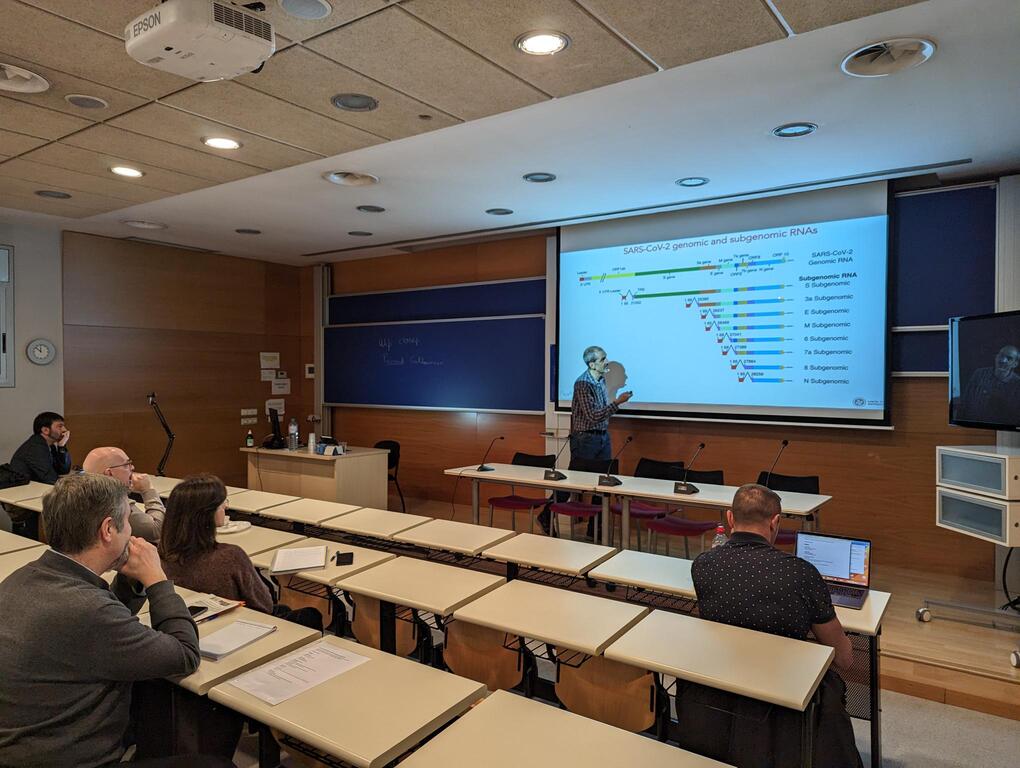 Santiago F. Elena in the middle of his scientific talk
Santiago F. Elena in the middle of his scientific talk
Santiago F. Elena, CSIC Professor at the Institute for Integrative Systems Biology (I2SysBio) and part of the research team of the project was in charge of giving the first scientific talk. Dr. Elena’s role will be to provide experimental data and ensure mathematical models are well ground in biological observations.
In the talk, entitled ‘Experimental evolution of betacoronavirus Defective Viral Genomes’, he gave an overview of the State-of-the-art of the research on DVGs. He explained the different defects present on virus genomes and their research on their identification and characterization of types and variabilities.
Lluis Alsedà, CRM director and researcher whose role in the project will be to supervise the design and implementation of the simulation models to investigate the evolutionary dynamics of DIPs, gave the second scientific talk.
He introduced AI tools for the simulation of DIPs production, discussing computational constraints and issues and showing first results based on initial simulations.
TIPSAVIR is the first scientific project obtained in collaboration with I2SysBio. These two centers built a CSIC associated unit (AU) in 2018. Since then, the AU has celebrated several activities including seminars, scientific meetings, and has published several articles in peer-review international journals (link).
The Translation Advisory Board
Last but not least, a discussion with the Translation Advisory Board (TAB) moderated by Dr. Arantxa Sanz (also part of the work team of the project) took place. In a project that combines two disciplines and has the aim of having a direct social impact, besides strong research, further expertise is needed, in terms of regulatory issues, scaling up the product and clinical expertise. Therefore, the TAB has been appointed to fulfill this gap from research to society, and most of its members were also present in the kick-off day.
The board counts with Isabel Amat (Reig Jofre), Jose Luis Cabero, Esther Riambau (Oniria Therapeutics CEO), Dr. Francisco Rodríguez Frias (Vall d’Hebron Institut de Recerca, VHIR), Dr. Josep Quer (VHIR), Dr. Maria-Carla Saleh (Pasteur Institute in Paris) and Marco Vignuzzi (A*STAR ID Labs).
 Josep Sardanyés, principal investigator of the project, presenting the team.
Josep Sardanyés, principal investigator of the project, presenting the team.
Besides Josep Sardanyés, Tomás Alarcón, Santiago F. Elena and Lluis Alsedà, the research team of the project will be rounded up with Pau Reig as a research technician. The work team, in addition to Arantxa Sanz, is constituted by Julia Hillung, María José Olmo-Uceda, David Romero and Carla Rubio.
To follow the advances of the project, keep track of the page (TBP).

CRM Comm Team
Anna Drou | Pau Varela
CRMComm@crm.cat
Subscribe for more CRM News
Hong Wang: On Solving Kakeya and Rethinking Restriction
At the Modern Trends in Fourier Analysis conference held at the Centre de Recerca Matemàtica, mathematician Hong Wang (NYU Courant) presented a new approach to the Stein restriction conjecture, connecting it with geometric incidence problems...
A Journey through Harmonic Analysis and PDEs – CRM Summer School Chronicle
From June 25 to 27, 2025, the Summer School on Harmonic Analysis and PDEs brought together researchers and students for three days of advanced courses and discussion. With lectures by Taoufik Hmidi, Daniel Faraco, and Joan Verdera, the program covered topics like...
Guillem Blanco rep el Premi José Luis Rubio de Francia 2024
Guillem Blanco, professor de la UPC i investigador adscrit al CRM, ha estat guardonat amb el Premi José Luis Rubio de Francia 2024 per les seves contribucions a la teoria de les singularitats i els D-mòduls. El jurat ha destacat, entre altres...
Hypatia 2025 Brings Together Young Researchers in Mathematics
The fourth edition of the Hypatia Graduate Summer School took place from 16 to 19 June 2025 in Barcelona. Addressed to PhD students, the school combined two advanced courses in number theory with a public colloquium, a film screening, and...
Javier Gómez Serrano collaborates with Terence Tao and DeepMind on an AI project to solve open mathematical problems
Javier Gómez Serrano, former CRM member and professor at Brown University, is working with Terence Tao and DeepMind on AlphaEvolve, an AI tool that uses code evolution to solve complex math problems. For him, it signals a shift in how research is...
Closing Session of the SIJIMat Seminar: A Celebration of Young Mathematical Talent
Four young researchers (S. Dhyr, A. Garcia, L. Unamuno and R.Homs) at CRM present their work in geometry, neuroscience, environmental statistics, and algebraic methods in the final SIJIMat session of the academic year.On June 12, the Centre de Recerca Matemàtica (CRM)...
What is Open Science? From Data to Impact: Insights from the CRM
On June 11, the Centre de Recerca Matemàtica (CRM) hosted the Open Science Day, bringing together researchers to explore the principles, challenges, and transformative potential of open science. With a central talk by Ignasi Labastida and a roundtable featuring...
The IRP on Modern Fourier Analysis moves forward with its main conference at CRM
For one intense week, the CRM auditorium became a meeting point for some of the most active researchers in modern Fourier analysis. From June 2 to June 6, 2025, the Conference on Modern Trends in Fourier Analysis brought together senior experts,...
Welcoming Eleven New Affiliated Researchers to the Centre de Recerca Matemàtica
From left to right, top to bottom: Carles Broto (UAB-CRM), Álvaro Corral (UAB-CRM), Wolfgang Pitsch (UAB-CRM), Richard Lang (UPC - CRM), Simeon Ball (UPC - CRM), Lluís Vena (UPC - CRM), Jorge Antezana (UB-CRM), Leticia Pardo (UB-CRM), Guillem Blanco (UPC - CRM),...
El CRM acull una nova sessió del programa Bojos per les Matemàtiques
Dissabte passat, el Centre de Recerca Matemàtica va acollir una sessió del programa Bojos per les Matemàtiques, adreçat a estudiants de batxillerat amb interès i talent per aquesta disciplina. Una vintena de participants van assistir a dues...
Núria Fagella, nova degana de la Facultat de Matemàtiques i Informàtica de la UB
La professora i investigadora Núria Fagella ha estat escollida nova degana electa de la Facultat de Matemàtiques i Informàtica de la Universitat de Barcelona. Especialista en dinàmica complexa i adscrita al Centre de Recerca Matemàtica, el seu...
El CRM apropa el cervell al públic a la Festa de la Ciència amb l’activitat “Neural Code”
Aquest cap de setmana, el Centre de Recerca Matemàtica ha participat a la 18a Festa de la Ciència de Barcelona amb l’activitat Neural Code, un taller interactiu per explorar com el cervell transforma els senyals neuronals en moviment. L’activitat, organitzada en...


